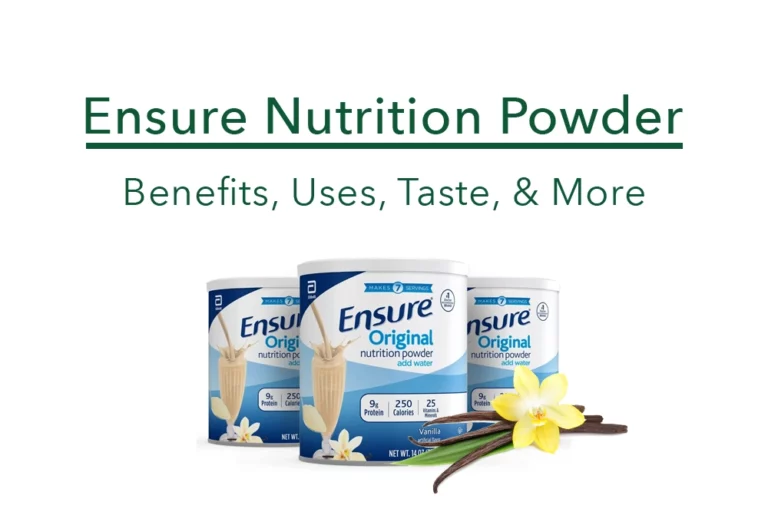Can You Take Vitamins to Gain Weight?
Vitamins and minerals are essential for normal cell function, growth, and development.
Foods naturally contain vitamins and minerals or they may be added to others during the manufacturing process.
However, not everyone gets enough of the vitamins and minerals they need to optimally support health.
This makes supplementation a relatively inexpensive and sure way to give your body the nutrition it needs when your diet falls short.
But while most people turn to vitamin supplements to make sure they’re getting enough essential nutrients, others turn to them in hopes of gaining weight.
This article explains whether you can take vitamins to gain weight and provides weight gain strategies and tips.

Will vitamins make you gain weight?
Vitamins and minerals are the largest dietary supplement category, purchased by most supplement users.
You can purchase them as individual nutrients — like vitamin D or calcium — or as a multivitamin, which contains a combination of multiple vitamins and minerals.
Vitamins supplements are usually sold in pill form as tablets or capsules but liquid alternatives also exist.
In either case, vitamins and minerals do not provide calories, and therefore taking them will not help you gain weight, even though they are essential nutrients.
Many nutrition drinks that can help support weight gain goals like Ensure or Boost contain a variety of vitamins and minerals, and often advertise this on their labels.
However, the calories from these products come from a combination of proteins, carbs, and fats, which are the only nutrients that provide calories.
Fats provide 9 calories per gram while protein and carbs provide 4.
Certain nutrient deficiencies may decrease appetite
Because vitamins and minerals don’t contain calories, taking them won’t help you gain weight.
However, certain nutrient deficiencies can decrease appetite and therefore make it more difficult to eat enough calories to maintain a healthy weight.
Nutrient deficiencies that can decrease appetite include iron, zinc, and thiamin (1, 2, 3).
The best food sources of these nutrients include:
- Iron: fortified breakfast cereals, oysters, lentils, spinach, beans, sardines, and beef
- Zinc: oysters, beef, crab, lobster, pork, chicken, pumpkin seeds, and yogurt
- Thiamine: pork, fish, black beans, and enriched cereals, bread, noodles, and rice
A blood test can determine whether you have a deficiency in one or more of these nutrients.
If you are deficient in these nutrients, supplementing them may help restore your appetite and make it easier to eat the calories you need to gain weight and maintain a healthy weight.
Tips for gaining weight
Gaining weight can be just as challenging for some as losing weight is for others.
Here are some tips that can help make gaining weight easier:
Prioritize calorie-dense foods
Calorie-dense foods are those that contain a high number of calories relative to their weight.
Eating more calorie-dense foods can make it easier to eat more calories and gain weight.
The best calorie-dense foods include:
- peanut butter
- full-fat dairy products
- oils
- nuts and seeds
- avocados
- fatty cuts of beef
- oats
You can also use some of these foods to make high-calorie shakes and smoothies.
Weight gainer supplements and high-calorie bars can also be useful for increasing your calorie intake.
Fortify your foods
Increasing the calorie and protein content of the foods you already eat is one of the most efficient ways to gain weight.
Here are some ways to increase the protein and calorie content of foods:
- melt butter or over potatoes, rice, pasta, and cooked vegetables
- add butter to soups and casseroles
- add cheese to toast, crackers, sandwiches, baked potatoes, vegetables, noodles, and casseroles
- replace water with whole-fat milk for cereal and cream soups
- add beans and peas to salads, soups, and other dishes
- spread jelly, honey, and peanut butter on bread and crackers
- use heavy cream for coffee or to thicken cream-based sauces and soups
- add peanut butter, honey, and nuts to hot cereals
Eat more frequently
Many people who struggle to gain weight experience early satiety.
Early satiety occurs when are unable to eat a full meal or you feel very full after eating a small amount of food.
This can make it very difficult to eat enough calories throughout the day to gain weight.
To combat early satiety, try eating 5–6 smaller, more frequent meals rather than 3 larger meals.
Depending on your schedule and life responsibilities, eating more frequently may not be the most convenient, but meal prepping can make doing so much easier.
Here are some high-calorie meal ideas for breakfast, lunch, and dinner to try.
The bottom line
Vitamin supplements are a relatively inexpensive and convenient way to make sure you’re getting the nutrients your body needs, especially if you don’t have the best diet.
However, because vitamin supplements contain no calories, taking them won’t help you gain weight.
But, correcting an iron, zinc, or thiamine deficiency may restore a poor appetite and make it less difficult to eat enough calories to gain weight.
If you have trouble gaining weight, try prioritizing calorie-dense foods, fortifying your foods to increase their calorie and protein content, and eating more frequently.






